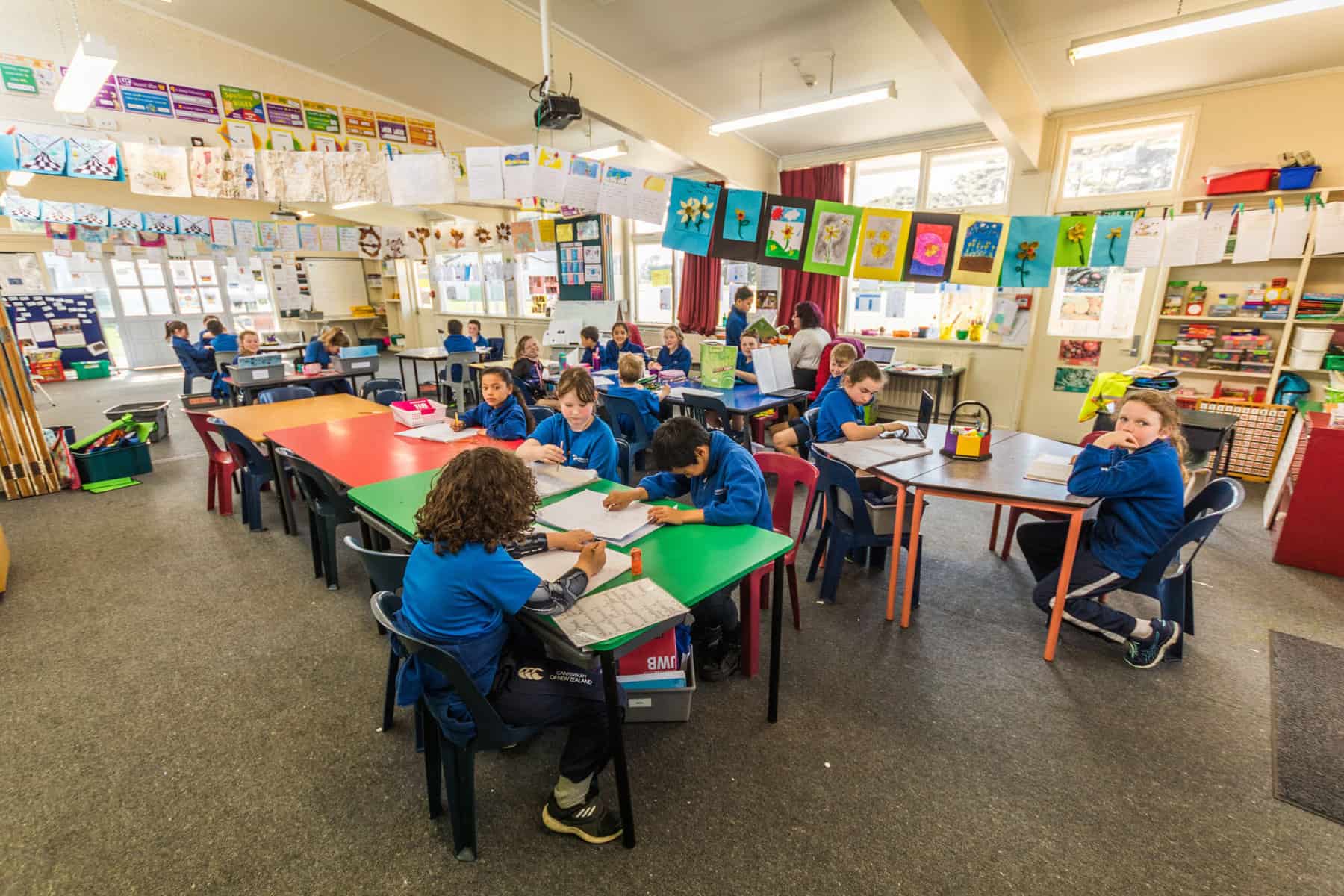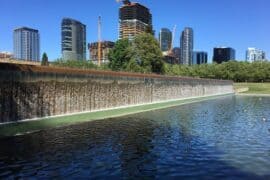Welcome to the Enchanting World of New Zealand Primary Schools!
Hello, wonderful parents! Are you embarking on the exciting journey of navigating the New Zealand primary school system for your little one? Fear not! We’ve got you covered with our comprehensive guide, crafted with love, to help you understand what makes Kiwi primary education unique, engaging, and absolutely top-notch!
Whether you’re a local resident or considering a move to the picturesque lands of Aotearoa, this guide is your one-stop treasure trove of information. So sit back, relax, and let’s dive into the educational adventure that awaits your child in the land of the long white cloud.
Understanding the Basics: What Makes Up New Zealand Primary Schools?
New Zealand primary schools cater to children from years 1 to 8, typically starting at age 5 and running to about age 12 or 13. What’s special about these Kiwi gems is their commitment to a holistic approach, where the focus is not just on academics but the overall well-being and development of every child.
A Closer Look at the Curriculum
The curriculum in New Zealand is broad and balanced and is designed to foster diverse skills. The core subjects include English, Maths, Science, Social Sciences, Technology, The Arts, Health and Physical Education, and Learning Languages. All these are taught with a twist of creativity and innovation to keep your child’s learning experience as thrilling as a hobbit’s adventure!
The Education Structure
New Zealand’s education system is divided into three levels: primary, intermediate, and secondary. While some schools offer full primary education up to Year 8, others may end at Year 6, which is where intermediate schools come into play – they cover Years 7 and 8. Here’s what differentiates them:
- Contributing Primary Schools: These schools educate children from Year 1 to Year 6, after which students move to an intermediate school.
- Full Primary Schools: These are the all-in-one package offering education from Year 1 through to Year 8, eliminating the need for a separate intermediate school.
Deciles and What They Mean
One aspect you’ll hear a lot about is school ‘deciles.’ These are part of a funding system that ranks schools based on the socio-economic status of its community. From Decile 1 for schools in less advantaged areas to Decile 10 for those in more advantaged areas, this affects how much government funding a school receives, not the quality of education.
Putting Down Educational Roots: Enrolling Your Child in a Primary School
Ready to take the leap? Enrolling your child in a New Zealand primary school is straightforward. It’s a matter of finding the ‘zone’ in which you live and enrolling your child in a school within that zone. Priority is given to those living in the school zone, which ensures that every child has a right to attend their local school. Here’s what you need to know:
- Your Residential Address: Make sure you have proof of your address, as this will determine your school zone.
- Documentation Required: You’ll need your child’s birth certificate or passport, vaccination records, and any previous school reports to complete the enrollment process.
- The Best Time to Enroll: While enrollments are typically taken at any time, starting the process early can alleviate a lot of pressure. Most parents start looking into schools a year before their child is due to start.
With your enrollment concerns sorted, you can look forward to the exciting world of primary school, where your child will grow in leaps and bounds. In New Zealand, the focus is on nurturing curious minds and kind hearts, preparing them not just for academic success, but for a fulfilling and well-rounded life.
Stay tuned, dear parents, as we delve further into the delightful nuances of New Zealand primary education. We will explore everything from school cultures and environments to extracurricular activities that enrich your child’s primary school years. Let’s ensure that this chapter of your child’s life story is both vibrant and fruitful!

5 Essential Things Parents Should Know Preparing for New Zealand Primary Schools
As you gear up for this significant milestone in your child’s life, there are a few key things you should be aware of. To make the transition as smooth as possible, here are five essential things to understand in preparing for New Zealand primary schools:
1. The Importance of Early Childhood Education
Before primary school, consider the role of early childhood education (ECE). In New Zealand, ECE is highly valued and can be a crucial step for your child’s social and learning development. It’s beneficial for children to attend kindergarten or a similar ECE service, to adjust to structured learning environments.
2. Understanding School Readiness
‘School readiness’ isn’t just about knowing letters and numbers; it encompasses social skills, independence, and emotional maturity. Help your child develop these by encouraging playdates, self-care tasks, and expressing emotions in a healthy way.
3. Familiarize With the National Standards
New Zealand has National Standards for reading, writing, and mathematics. Familiarizing yourself with them can help you understand the academic progress your child should be making and how you can support their learning at home.
4. The Role of Te Reo and Tikanga M?ori
Te Reo (the M?ori language) and Tikanga M?ori (M?ori customs) are integral parts of the curriculum. Engage with these cultural aspects at home – it not only supports your child’s learning but also shows respect for the country’s heritage.
5. Get Involved With the School Community
Parental involvement is highly encouraged in New Zealand schools. Attend school events, join the PTA, or volunteer in class. This will help you stay informed about your child’s school life and forge strong connections with the school community.
Ensuring you are equipped with the above knowledge will set a solid foundation for your family’s journey through the New Zealand primary school system. Embrace the preparation and remember, every effort you make now contributes to your child’s bright and promising future.
Witnessing the Magic: School Culture and Environment
Part of what makes New Zealand primary schools so magical is their vibrant culture and nurturing environment. Kiwi schools often pride themselves on their bicultural heritage, inclusive environment, and emphasis on values such as respect, responsibility, and community. Each school has its own unique ‘flavour’ influenced by its local setting, community, and history.
It’s a world where school assemblies feature spirited haka performances, classrooms open up to spectacular natural settings, and students are encouraged to take on leadership roles through student councils and environmental initiatives. These experiences enrich the primary school years, making them as memorable as they are educational.
The Joy of Extracurriculars: Beyond the Classroom
Learning in New Zealand extends beyond the conventional classroom. A wealth of extracurricular activities await your child, offering a bounty of benefits. From sports clubs and cultural groups to chess clubs and environmental projects, these activities promote teamwork, self-discipline, and personal interests. They also offer a great way for your child to make friends, pursue passions, and develop new skills.
Encouraging your child to participate in extracurricular activities not only adds to their school experience but also helps them develop a well-rounded character. It’s about igniting their interests and allowing them to shine in all they do.
As this guide has shown, the journey through New Zealand’s primary school system is an exciting and enriching one. We have delved into everything from the structured aspects like enrolments and curriculum to the heart and soul of what makes these schools truly special. As your family takes this step together, cherish the anticipation and look forward to the stories your child will create in the chapters ahead. Welcome to the enchanting world of New Zealand primary schools!
See more great Things to Do with Kids in New Zealand here. For more information see here
Disclaimer
The articles available via our website provide general information only and we strongly urge readers to exercise caution and conduct their own thorough research and fact-checking. The information presented should not be taken as absolute truth, and, to the maximum extent permitted by law, we will not be held liable for any inaccuracies or errors in the content. It is essential for individuals to independently verify and validate the information before making any decisions or taking any actions based on the articles.




